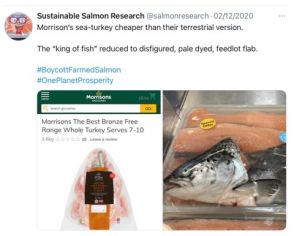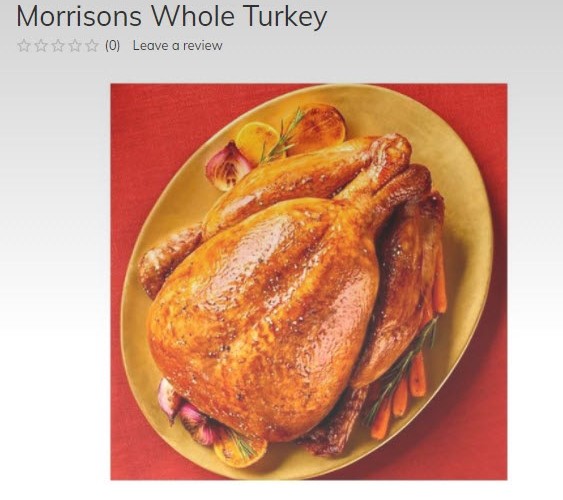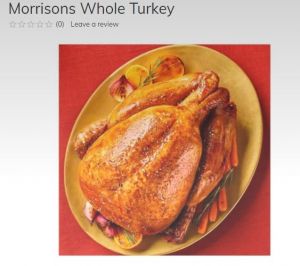Reflections: Little did I know when in January 2000, I wrote my first e-mail commentary, that twenty-one years later, I would be writing number 1000. As we approach the end of 2020, a year marred by a global pandemic, I thought that this might be a time for reflection together with a wish for better times ahead.
The idea behind reLAKSation was to provide my perspective on stories I had read in the wider media about the consumer market for fish and especially farmed salmon. Commentaries about the market led me to look at consumption and the worrying downward trend of eating fish at home. I had seen a report from 1995 about the fishing industry that included a small section about consumption. The report argued that whilst the majority of consumers were older, younger people would start to eat fish after their families had grown up and left home – that is when they were now older consumers themselves. I was not convinced then and remain unconvinced. Sadly, we, as an industry, have never managed to change consumption habits with regard to buying fresh or chilled fish to cook and eat at home.
This year, there has been a slight reversal of the trend due to COVID. However, I suspect that this is simply older people buying more fish to eat at home because they were unable to go out to restaurants to eat. It would not surprise me if DEFRA and Seafish claim that this increase is due to their promotional campaign earlier in the year, but the figures I have so far seen would not yet support such a position.
Over the years, there have been a number of promotional campaigns, but these have not made much impact on the market. The current promotion is Love Seafood, but this too, is struggling to make any impact. Some of the videos have attracted virtually no attention from the public.

The campaign is supposed to be long term but if there is little impact now, it is unlikely that further funding will be approved. My view is that traditional campaigns are now past their sell by date and we need new out of the box thinking to kick start increased home consumption. One idea was put to the Seafood Innovation Fund (SIF) for support, but sadly it was too innovative for this innovation funding. SIF was intended to seek innovation that would disrupt the fisheries sector and market, but anyone expecting anything along such lines will be somewhat disappointed. I now understand a London-based seafood charity has arrived at a similar conclusion as to how to develop the market and is putting forward almost identical proposals. It seems that there may yet be hope for the future of fish consumption.
Back in 2010, I began my journey looking at the impacts of salmon farming on wild salmon. After ten years, I am yet to be convinced that the many claims made against the industry have any real substance. I am still waiting for anyone from the wild sector to tell me that I am wrong. I have repeatedly stated that if I am mistaken, I will readily hold up my hands and admit my error. However, I am still waiting.
I am certainly still waiting to hear from Andrew Graham Stewart from Salmon and Trout Conservation, who is quick to appear on TV to tell the world about the evils of salmon farming but will not defend his claims to my face. This is because he is not challenged on TV as to whether his claims are justified. Mr Graham Stewart recently appeared on BBC Countryfile to relate the problems of sea lice despite the fact that Peter Pollard from SEPA had told the same REC Committee inquiry that Salmon and Trout Conservation had initiated, that sea lice were not responsible for the decline of wild salmon stocks. It seems it is not just me that Mr Graham Stewart chooses to ignore.
Salmon and Trout Conservation may be going through some form of reorganisation. Their fixation with the salmon farming industry in Scotland appears to be of increasing concern to some within the organisation as this has led them to be thrown out of the ‘Missing Salmon Alliance’ and an increasing loss of income. Perhaps, the time has come to let Mr Graham Stewart take his pension and for the rest of us to move on to address the real issues affecting wild salmon.
In addition to sea lice, the other issue that is highlighted by the angling sector is that of accidently released farmed salmon. It is now several months since Storm Ellen and I am still waiting for the promised scale reading survey to be published by Fisheries Management Scotland. Clearly, they have other priorities since the latest news they posted was that when the River Helmsdale opens for fishing on January 11th there will be no charge until January 23rd. I am sure that the wild salmon of the River Helmsdale will be delighted to be targeted so early in 2021.
Tyresome: The angling sector are not the only ones to throw muck at the salmon farming industry, the keyboard warriors are a constant presence, yet I have largely stopped looking at their comments because I have concluded they are irrelevant whilst they hide behind their keyboards simply negatively commenting on news stories without contributing to the debate. The one with the most prolific output is Derek McLay of Lambert who tweets under the name of Sustainable Salmon Research yet is someone who does not seem to have undertaken any research into salmon farming at all. I only mention him now because he recently tweeted that the supermarket Morrison’s was selling their salmon at a price even cheaper than Christmas turkey. Unfortunately, Mr McLay’s research is incorrect. He compares the price of Morrison’s turkey £6.39/kg with fresh whole salmon at a promotional price of £4.99/kg (compared with a normal price of £8/kg). However, the turkey quoted is Morrison’s, ‘The Best’ premium range. Morrison’s standard turkey is in fact just £3/kg, well below the promotional price of salmon. This is typical of the poor research and the misinformation that is spread widely on social media.


Of course, the keyboard warriors are highly selective of the news items they spread. For example, the story that chemicals from car tyres has been found to be instrumental in the decline of wild salmon in the US. The critics are not interested in such stories because they do not implicate salmon farming in the declines. I was especially surprised that Derek McLay did not mention it because he does sometimes tweet about other impacts on wild salmon. But then I remembered that Derek apparently has a business making bicycle wheels and, of course bicycle tyres contain the same chemicals as those used in cars.
Mr McLay is not the typical keyboard warrior as he is based many miles from any salmon farm. Most of those who speak out against the industry can be better described as NIMBY’s rather than warriors. A case in point is the person who tweeted under the name of @stopourlochs and who lived near Loch Tralaig outside Oban. This critic complained extensively about the production of salmon smolts in the loch but as soon as the farm was emptied, he stopped tweeting. Clearly, he was only interested in the salmon farm on his doorstep rather than the industry as a whole and this is typical of many of the critics, especially those who have settled along the west coast, usually to retire, and then found that other people there have to earn a living that require jobs and working businesses.
Mr McLay has also failed to mention the news from Canada that the number of returning Chinook salmon to the Campbell river is the highest it has been since 1990. According to Island Fisherman magazine, Coho salmon were more than double those of last year. In addition, the number of Pinks were only slight down on last year. Meanwhile Alexandra Morton continues to call for the closure of salmon farms across BC in order to protect wild salmon. This is a message she has been repeating since the late 1980s and yet wild salmon still abound in BC. However, like salmon everywhere, wild stocks have been under severe pressure from a wide variety of other factors, which due to this focus on salmon farming, have been largely ignored.
The problem is, and it makes no difference whether it is Alexandra Morton, Andrew Graham Stewart or even Don Staniford, they have been expounding the same narrative for so long they are now unable to recognise that they might in fact be wrong. Talking of Alexandra Morton, news has just broken that farms in the Discovery Islands are to close. I hope that Ms Morton has a good explanation ready for when the wild salmon fail to return in the years to come and there are no salmon farms to blame.
Meanwhile, on this side of the Atlantic, Marine Scotland have gathered a small band of people to draw up a national strategy for wild salmon. This is flawed simply because it is rather a pointless exercise asking the same people who have overseen a dramatic decline in wild fish numbers to now develop a new strategy to safeguard wild stocks for the future. I understand the group has already objected to the presence of a representative of the salmon farming industry on the group even though they are always present on groups about salmon farming. The first step is to decide whether the iconic salmon is something we wish to protect in the wild in the same way as the iconic golden eagle or is it something that is simply to be exploited. I am not sure it can now be both. If it is to be the latter, then the wild fish sector needs to accept responsibility for its actions and stop blaming everyone but themselves when things go wrong.
Salmon are a natural animal living in a natural environment. Change is a constant, especially when it comes to the weather so that every year is different. This means that to truly understand the pressures experienced by wild salmon, there need to be long term studies over many years. Unfortunately, the scientific community seem to think one- or two-years’ work can provide enough of a result to answer many of the questions. The Moray tracking project is a case in point with results being announced after just one year’s tracking. What might have been true for 2019 may not be true for 2020 or 2021. Why for example, are Chinook returns to the Campbell river such improved after years of poor runs?
In addition to the wild fish strategy, the Scottish Government are currently running meetings to advise on their new restocking policy. This appears to have been based on how the science has been interpreted rather than on common sense. The policy effectively bans restocking except in cases of mitigation and then only with eggs or unfed fry that have come from fish from the specific river. This is to ensure that the genetic integrity of the stock is maintained as well as to prevent stocking with inferior domesticated fish. It seems that if fry are fed in a hatchery, they immediately take on all the traits of domesticated fish and are unable to compete in the wild. How escaped farmed fish are able to find their way up rivers to breed successfully with wild fish is therefore beyond me. At the same time, restocked fish are said to compromise the genetic integrity of wild fish populations. These are the same populations that the £1 million FASMOP project was unable to distinguish from each other. My view is that if we are so concerned about the impacts of stocking and want it banned then we should ban all human interference including angling.
What is more surprising is that whilst the Scottish Government are considering banning restocking, the UK Government have just announced a Christmas bonus for anglers with the news that the Environment Agency has released more than 26,000 fish into rivers and fisheries in northern England to support local angling clubs and to boost fishing in the region. This restocking is funded from rod licence sales, something that Scotland does not require. The Environment Agency clearly have different priorities to the agencies in Scotland.
Heir to Attenborough?: Finally, I would like to mention a new book – Back to Nature by naturalist Chris Packham and his zoologist stepdaughter Megan McCubbin. The book is about protecting nature for future generations and examines some of the threats. Regular readers of reLAKSation will be able to predict what I will say next. Pages 146 to 154 cover the evils of salmon farming. I will delve into the detail in a future issue of reLAKSation but I feel that I should highlight just three and a half lines which I hope will fire those working in the industry into action. The book mentions that by 2004 farmed salmon exceeded wild harvest by more than one million tonnes. They then say:
‘That’s a lot of fish and a lot of money, and where there is a lot of money to be made, people get greedy, cut corners, intensify to increase their profits and can forget about animal welfare and the environment. ‘
Chris and Megan provide no evidence to support this claim and I believe that as an industry, such claims should be challenged. Chris Packham is being groomed to be the next national treasure following Sir David Attenborough. He receives a lot of media coverage and it is disappointing that he can use this position to criticise others. At no point does he indicate whether he has visited a salmon farm and equally that during the writing of this book that he even tried to speak to someone from the industry to check his claims.
In the acknowledgements, Mr Packham thanks Bob Elliot of OneKind for his help. This is interesting because the book also states that Megan is a youth ambassador for the League against Cruel Sports. On pages 146- 147 of the book, Chris and Megan talk about how less than 5% of wild salmon now return to rivers to breed and that Scotland is a particular stronghold for the fish. They say that the only reason salmon persist in Scotland is netting has been shut down meaning that a quarter of a million salmon are no longer caught. They say whilst this has helped, it has not fixed the problem as these extra spawning fish have vanished. They add that ‘Let’s be clear though, those fishermen and women on the banks are not in any way to blame; they have been at the forefront of conservation efforts and many now voluntarily practice tag and release’.
I suppose these comments should not be surprising given that although OnekInd are an anti-cruelty charity, they have got into bed with Salmon & Trout Conservation. It seems that whilst S&TC’s Communication Consultant has admitted on a podcast that salmon fishing by rod and line is inherently cruel, such things are irrelevant when there is big business to attack. Could it be that the League against Cruel Sports and OneKind are somewhat selective in what they believe to be cruel? It will be interesting to see what they say.


